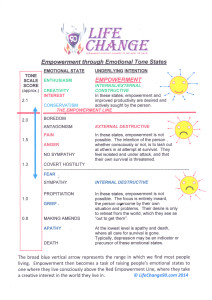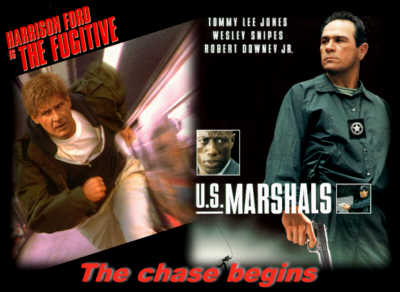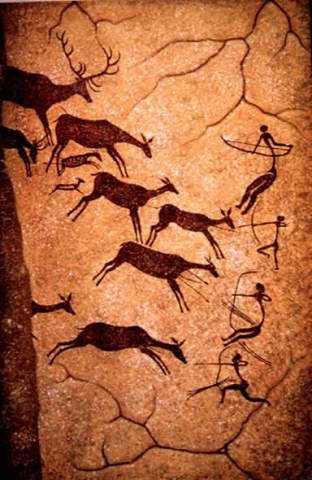A Lesson Of Life for each of us
“That men do not learn very much from the lessons of history is the most important of all the lessons that history has to teach.” ― Aldous Huxley, Collected Essays.

Massive Bulldozer lifting power. Image from hulcher.com
Or: The Lesson of Life I learned from a bulldozer and a bucket of oil!
Think back to 1984, if you can.
This was the time of the war over the Falklands Islands, between England and Argentina. It was the year Indira Ghandi was assassinated. Reagan made his famous joke: “My fellow Americans, I’ve signed legislation that will outlaw Russia forever. We begin bombing in five minutes.” He supposedly didn’t know the microphone was on. It was the year of the summer Olympics in Los Angeles, and the Soviet Union boycotted it. Wonder why. 1984 is the name of George Orwell’s famous novel, although he wrote it in 1949. It was the year the first “megabit” chip was ever made in Bells Laboratories – the event that heralded and made possible the super computers. 1984 was the year the “Bill Cosby Show” had its first TV premiere.
1984 was the year my old bulldozer gave me the most amazing lesson of life.
In that former life, I had a farm and an earth moving business, doing land clearing, soil and water conservation dams and channels, noxious weed management, tree removal and levelling building blocks, regular bulldozer type work.
I need to give you some idea of the scale of the machinery used, to put this into perspective.

Ironbark Tree – image from nationalregisterofbigtrees.com.au
Imagine a tree, 100 feet tall, around 30 metres. That’s half as long again as a cricket pitch. This tree is an ironbark tree, half a metre through at the trunk. It has branches and leaves on top, roots around 2 metres deep in the earth, and with a big clump of soil around them. It had to be moved. My bulldozer was actually a track loader with a clam bucket on the front (similar to the photo above), useful for picking up objects in the big jaws. The tree was gently pushed over and laid on the ground, roots and all. My bulldozer came alongside, clamped the jaws over the trunk of the tree, picked it up and carried it across the field to a large log pile, lifted it 15 feet (4 metres) into the air and laid it on top of the pile, for pole harvesting later. That was easy. And it shows the power of the hydraulic system of this particular bulldozer.
Earth moving equipment needs to be maintained for it to work properly, and there are many moving parts, using lots of oil.
Onto the lesson of life. We, my assistant David and I, were doing a regular oil change. The hydraulic oil was very special – read ‘expensive’. In 1984 dollars, when a 5 gallon can of regular oil was $20, this was $200! Every drop precious. We drained the old oil, and replaced the filters and the oil plug. Because the machine was so big, we were working on opposite sides of it. David was 18 years old and as fit, flexible and athletic as any farm kid in those days. I called out to him:
“David, I’ve replaced the plug and tightened it. I’m ready to put the new oil in. Have you tightened the filters?”
“Yep. They are tight.”
In went the new oil, glistening gold as it poured down the funnel. I wiped my hands on an oil rag, then climbed up to start the engine. As it started, a spray mist of fine gold particles created a perfect rainbow arc beside me. The precious oil was gone in seconds. David hadn’t tightened the filters enough after all! The incredibly powerful hydraulic pump that could lift a 100 foot tall iron bark tree up in the air, roots and all, pumped all that expensive oil out into a magical golden rainbow.
I shut the engine down and sat for a few seconds in silence. David stood there, out of range, but prepared to sprint for the cover of the bushes behind him. Much went through my mind. First was the thought of the cost. Then there was the thought of how much spare oil we had, because the job had to go on. Then there was David, almost rooted to the spot in fear, very apprehensive about what I might do. He looked ready to bolt into the bush and make his way home across country. A virtual whirlwind of thoughts. However, although I felt like a good butt-kicking would release some pressure from the head of steam I had developed, I didn’t feel it would achieve much else. There had to be a better way.
I looked at David, with a purposely blank expression. “I should have checked those filters, shouldn’t I?”
He just looked back in surprise – not expecting that. He was expecting spanners or other loose objects to be hurled at him I think. He mumbled something in reply but I don’t think his lips had reconnected to his thoughts at that time.
“Could you get the other drum of oil please David? I’ll clean this up and tighten the filters again.”
We put the new oil in and it tested perfectly; back to work we went.

That’s about right! Image from bestsayingsquotes.com
What was our lesson of life?
In the years since 1984, I have found so many lessons that came from that incident. I’ll list a few:
1. Getting angry didn’t serve anyone. Dealing with the problem did.
2. Blaming didn’t serve anyone. Taking responsibility did. On that point – was David to blame? He did say he tightened the filters. But David was an 18 year old staring goggle eyed at a huge machine, the likes of which were out of his imagination before he came to work for me. He was under my instruction, and it was my responsibility to make sure he understood and did what was necessary. No, I should have checked!
3. Monitor what you delegate. That came home with a $200 price tag, in 1984 – I have since had whole weekend seminars that taught me less than those few seconds and cost more too! Powerful lesson.
4. Teaching and imparting lessons rather than blaming for mistakes gains respect and trust.
I’ll spend a moment on this point. David was only 18 and this could have sent him packing, back to a cranky father with a drinking and gambling problem. Instead, it was a turning point in his life, as I later came to find out. From that moment on, he stepped up and took responsibility for maintenance. Never again did anything go unchecked; nothing was ever allowed to leak oil, rattle, or other than behave like brand new. It became his mission, to look after my machinery and be the best operator possible. He became a zealot!
We worked together for another couple of years when the business expanded and we took delivery of a massive earth moving scraper. When the dealer left after unloading and setting it up, I threw him the keys and said “Look after this, would you?”
The look on his face was priceless. However, the pride he felt was evident and he applied himself to caring for that new machine also, as though it was his very own.
David did not need a reprimand on that pivotal day. A lesson of life comes in many forms and opportunities are often disguised as disasters. That day was perhaps my greatest lesson of life and as I reflect on it from time to time, still more comes through.
5. Nurture your people, to allow them to become what is possible. Understanding of their situation and circumstances means that sometimes, you’ll make allowances. When you do, they have the opportunity to see that you are treating them as an individual, not a number. David realised I cared how he felt, and although he expected to be given the blame, he already felt bad enough – no one needed to hammer it home any more. His growth from this incident was phenomenal, but only because he was nurtured through it.
6. Education is critical. I didn’t expect David to know everything. I worked from where he was in life and built on his knowledge from that point. When he left my employ, he could stand tall with anyone in the industry.
7. The lessons you teach are taught to others. Did David tell anyone about this incident? Yes. His younger brother was the first one who came to talk to me about it. Their relationship changed at that time, as David became his mentor, rather than his tormentor – which many older brothers are. They taught others how to deal with crises when it happened to them. And so it went, down the line. Who knows how far the benefits of that lesson of life on that day have gone.
8. If David’s lesson from the day was to react in anger, instead of how it happened, do you think that lesson would have been perpetuated? Of course. However, it broke a cycle of blame and anger that had been his family’s way for generations. One incident can change a life, depending on how you deal with it.
In the 30 years since this event, much has happened. When I sold the machinery, David went his own way and I entered the corporate world. I attended seminars and heard the greats speak of their lesson of life and the amazing incidents they recounted. However, I often wondered about how these much embroidered tales of their wisdom and mastery actually began. Did they have an oil can moment too?
With my current programs and coaching clients, I am most conscious of how important the simplest lesson of life can be. The opportunity to impart them is vital, as we never know where they will end up and who they will empower.
“The difference between school and life? In school, you’re taught a lesson and then given a test. In life, you’re given a test that teaches you a lesson.” ― Tom Bodett
Life Change Coaching?
At your free initial session;
• We will look at what you want and gain clarity on the cause or need for your desire for coaching and change.
• We will give you an objective perspective of your situation and the opportunities, as well as the obstructions to your progress.
• Finally, we can help you establish a plan to progress your desires and goals to where you really want them to be.
Til next time, fair winds and full sails.
Ray Jamieson
PPS: If you wish to read my book “Lessons of Life”, check it out here!
Related Posts:










































